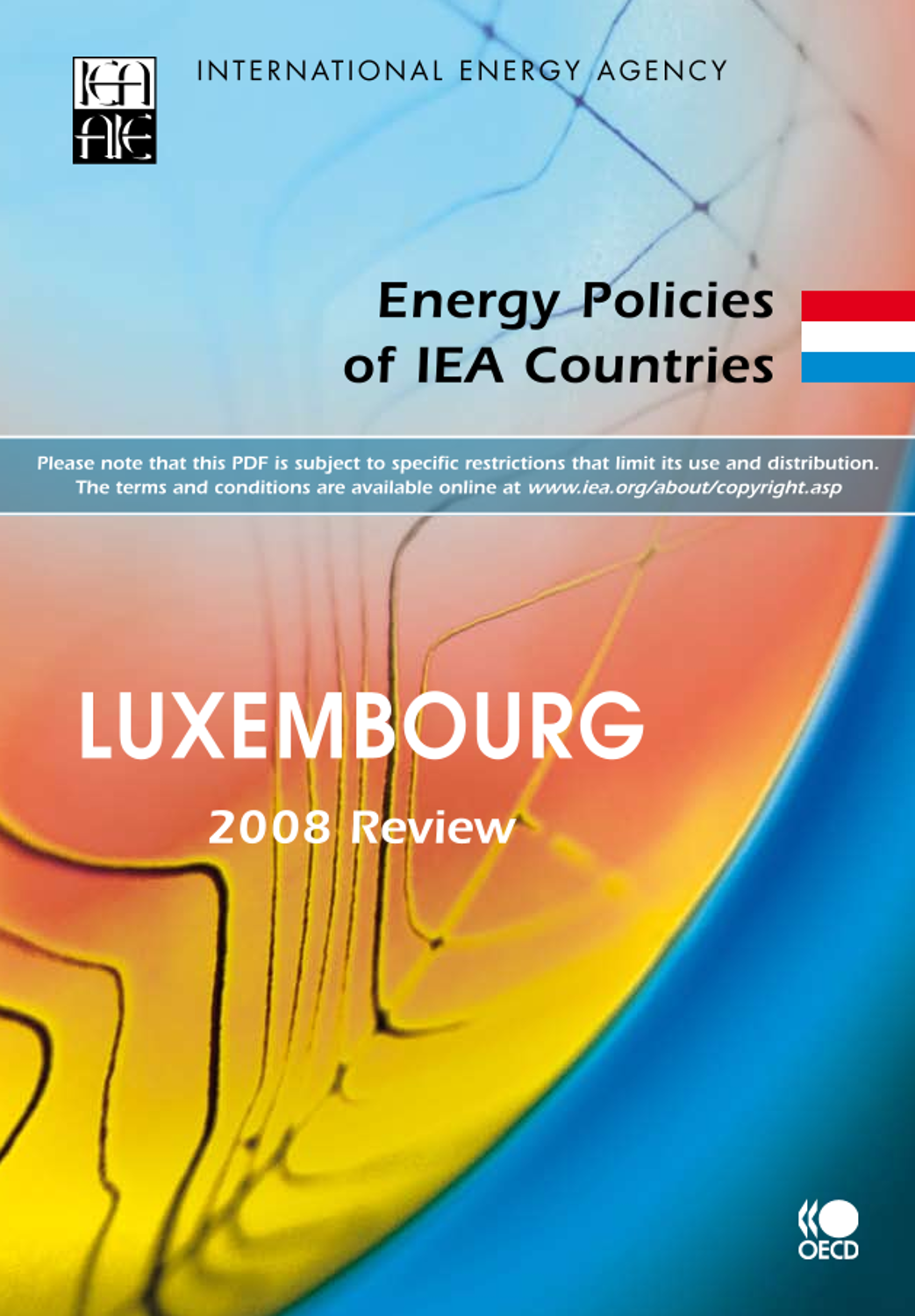
통계연감
Energy Policies of IEA Countries: Luxembourg ... Review
- 서명
- Energy Policies of IEA Countries
- 저자
- OECD/IEA
- 발행사항
- Paris : OECD/IEA, 2008-
소장정보
| 위치 | 등록번호 | 청구기호 / 출력 | 상태 | 반납예정일 |
|---|---|---|---|---|
이용 가능 (1) | ||||
| 자료실 | E203612 | 대출가능 | - | |
이용 가능 (1)
- 등록번호
- E203612
- 상태/반납예정일
- 대출가능
- -
- 위치/청구기호(출력)
- 자료실
책 소개
Luxembourg has reformed its energy policies across all sectors since the last IEA in-depth review in 2004. The country has fully liberalised its electricity and natural gas markets, and is actively participating in the development of the evolving Central West European regional electricity system. Luxembourg has also prepared a broad action plan on energy efficiency, improved the support system for renewable energy sources and revised taxes to mitigate climate change.
The country’s energy policy in the coming decade will be shaped by the EU 2020 targets that call for substantial reductions in greenhouse gas emissions, and strong increases in renewable energy and energy efficiency. These targets will be hard to meet, given that roughly half of energy-related CO2 emissions come from transport fuel use by foreign truckers and motorists, and that Luxembourg’s potential for producing much more renewable energy is limited.
Luxembourg is heavily dependent on oil. Although oil sources are well diversified by country of origin, more than 85% of oil stocks are held in neighbouring countries and often based on short-term leasing contracts. This leaves the country vulnerable to potential oil supply disruptions. Luxembourg should swiftly implement a plan to improve the security of oil supply.
This review analyses the energy challenges facing Luxembourg and provides critiques and recommendations for further policy improvements. It is intended to help guide the country towards achieving its sustainability targets.
목차
Table of contents:
1. Executive Summary and Key Recommendations
PART I. POLICY ANALYSIS
2. General Energy Policy
3. Sustainable Energy Policies
PART II. SECTOR ANALYSIS
4. Fossil Fuels
-Oil
-Natural Gas
-Coal
5. Renewable Energy
6. Electricity
PART III. ANNEXES
A. Organisation of the Review
B. Energy Balances and Key Statistical Data
C. International Energy Agency "Shared Goals"
D. Glossary and List of Abbreviations
